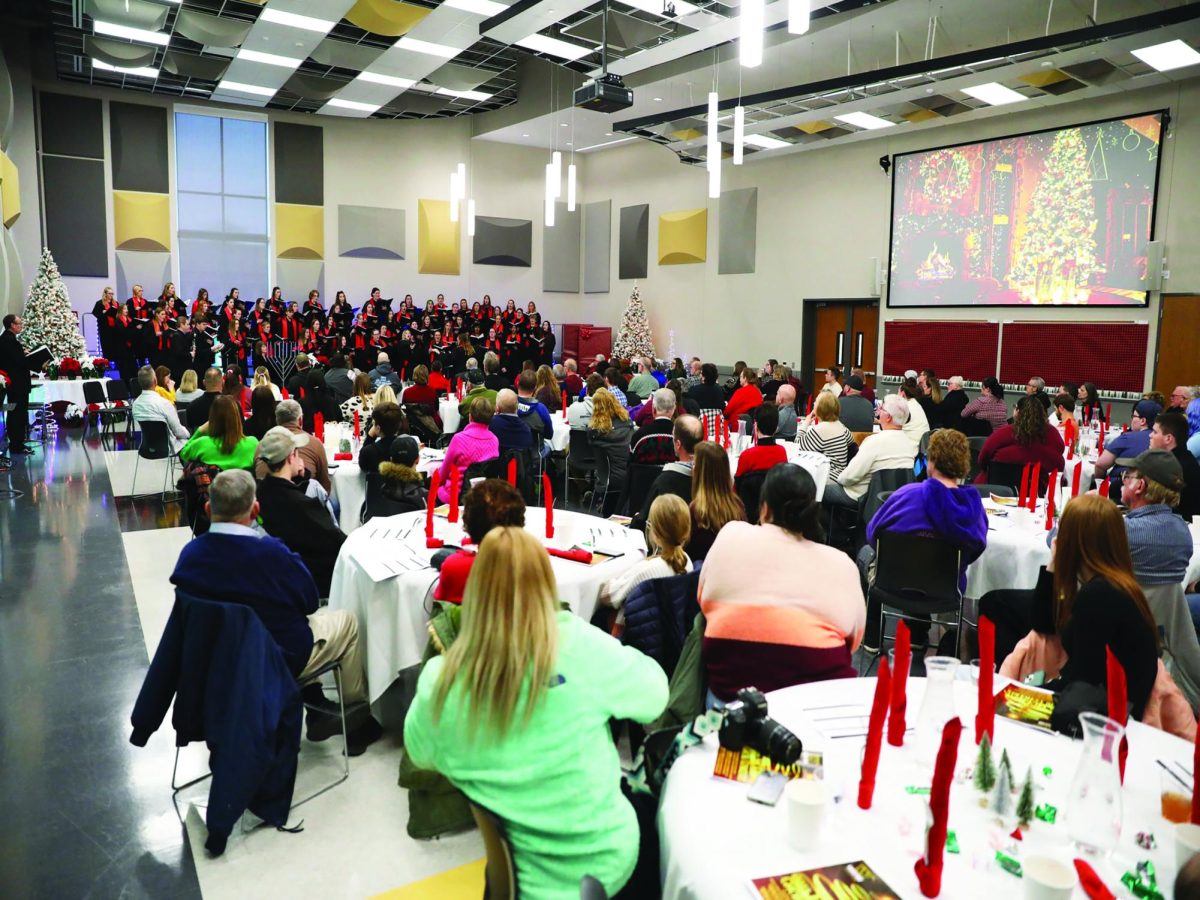In the rural areas of Nebraska, students are struggling with being involved in tutoring programs through their schools, when they need it most.
According to an article published by the U.S. Department of Education in 2021, consistent, formal tutoring can help improve a student’s grades and provide them much needed social interaction. Because of this, it is no surprise it also found roughly four out of five schools in the U.S. have at least one tutoring option after surveying 1,000 schools. However, for rural schools, these tutoring options are very limited. For these students, their tutoring options often consist of pay-to-use online tutoring, which for many students isn’t reasonable or doesn’t provide what they need, or an afterschool program run by a para and/or teacher.
One example is Wakefield’s afterschool program, previously run by Jean Dorcey, who is a Wayne State College special education professor.
“It was always really busy,” Dorcey said. “The time just really flew because everyone was busy and working on different stuff. I’d go around and this student would be working on math, this one would be doing English while another did social studies reflection questions.”
While Dorcey’s afterschool program was successful, she said it had to go through some changes to get to that point.
“When they first started it, it was required for anyone on the failing list,” Dorcey said. “It gave it a negative connotation. Students who had to go didn’t want to because they thought it made them seem stupid. They changed it to an as-needed program. They could come in, so our numbers ranged. One Tuesday we’d have 15 kids and another we would have five.”
While changing it to an as-needed program resolved some problems, Dorcey said it had other unfortunate effects.
“There are some students who would’ve benefited from it who didn’t, because we made it optional,” Dorcey said. Dorcey isn’t the only one to have this issue though.
Alan Gottula, the guidance counselor at Laurel-Concord-Coleridge public schools, said many of his students who need help have also refused it.
“The kids who need tutoring the most have kind of given up,” Gottula said. “They’re failing multiple classes, so they give up on most of them if not all of them.”
While Dorcey’s former after-school program was very helpful for most students, not all attempts at a tutoring program in other schools worked out. Gottula said finding and implementing a good tutoring program has been a long-time struggle with few successes.
“The successes that I’ve been aware of have been some teachers who have made arrangements to help students,” Gottula said. “They’re not doing a lot. I mean think about it, they can only do a few kids, but that has been successful but very informal.”
“Looking back through the years, it’s always been the same situation,” Gottula said. “I’ve been involved with organized tutoring programs in class B sized schools, schools of 400-500 kids, we struggled the same there as we did here.”
After working at different schools, Gottula said he found one common issue stopping his formal tutoring programs from working.
“The biggest issue is kids are very busy with a lot of activities,” Gottula said. “It was very difficult, even with a big pool of tutors to pick from, to match up schedule A with schedule B. You couldn’t do anything after school half the time because one or the other was involved in an activity.”
No matter where Gottula went, he said it was simply impossible to solve the scheduling issues. “There was a much larger pool of students that wanted to do peer tutoring, but I might have well been at Laurel-Concord-Coleridge with 130 students between four grades,” Gottula said. “I was fighting the same battles.”
While trying to overcome scheduling issues, Gottula said he explored online tutoring options like Khan Academy, a free-to-use program that gives students practice questions and feedback for different academic subjects, but nothing fit what students needed.
“The Khan Academy was one of those things that was supposed to solve everything,” Gottula said. “It was only really good for the hard classes. It never really worked for a lot of the kids that would request some kind of tutoring assistance. We always kind of regressed back into an informal situation.”
Despite his many struggles with implementing a formal tutoring program, Gottula said a new online tutoring program called Nebraska SMART, which is employed by WSC Education students, has caught his attention.
“I feel really good about this,” Gottula said. “This is the first time where I’ve seen an effort with somebody involved who can kind of put people together. You can use a student at Wayne State College who can help a kid in Wakefield, Laurel and Winside.”
Because the online tutors can access kids from over a broader area, Gottula said he hopes the program will be able to help more K-12 students than in-person tutoring would.
According to Nebraska SMART’s website, the program includes students from WSC, Chadron State College, and Peru State College who are part of the teacher education program. Each school has hired 10 tutors and one faculty coordinator. These tutors offer free online sessions, both on-demand and scheduled, to K-12 students in ESUs one, four, and 13. Students can receive help for English, Math, Science, and Social Studies after signing up for the service.
As Nebraska SMART has only been active since February, Gottula said it will take some time for it to gain popularity.
“It’s new. I know we’ve advertised it,” Gottula said. “If we can get the word out this spring, I think that’s as far as we’re going to get. People will realize it’s out there. Hopefully next fall, we’ll see people start to use it then we can start measuring its effectiveness. If we can get it out there doing the registration process and the student orientation process, there’s a chance people will use it more.”






